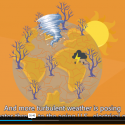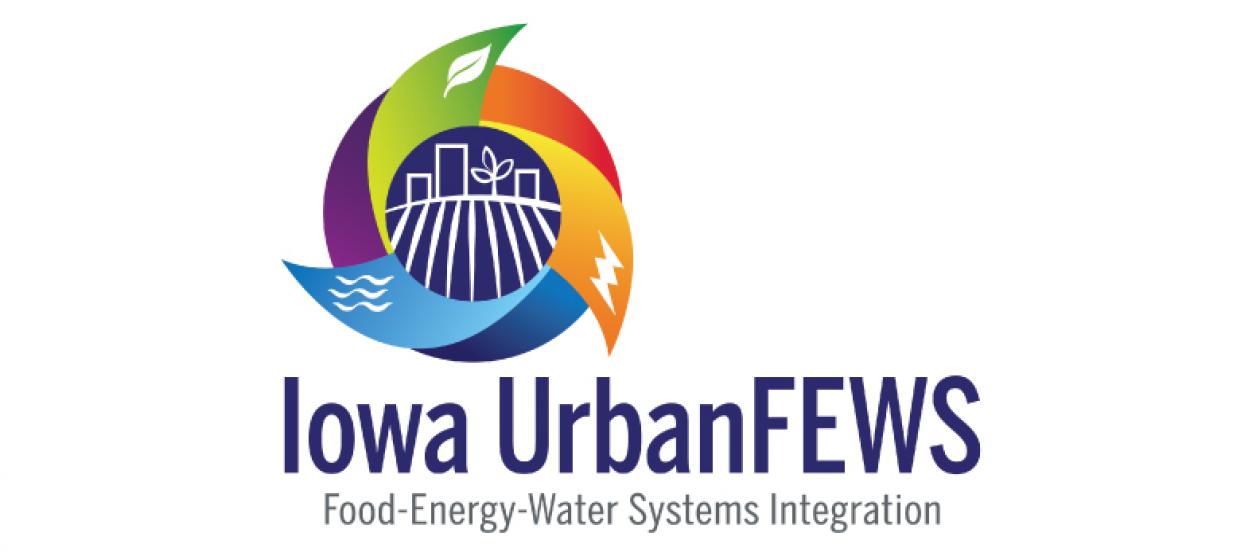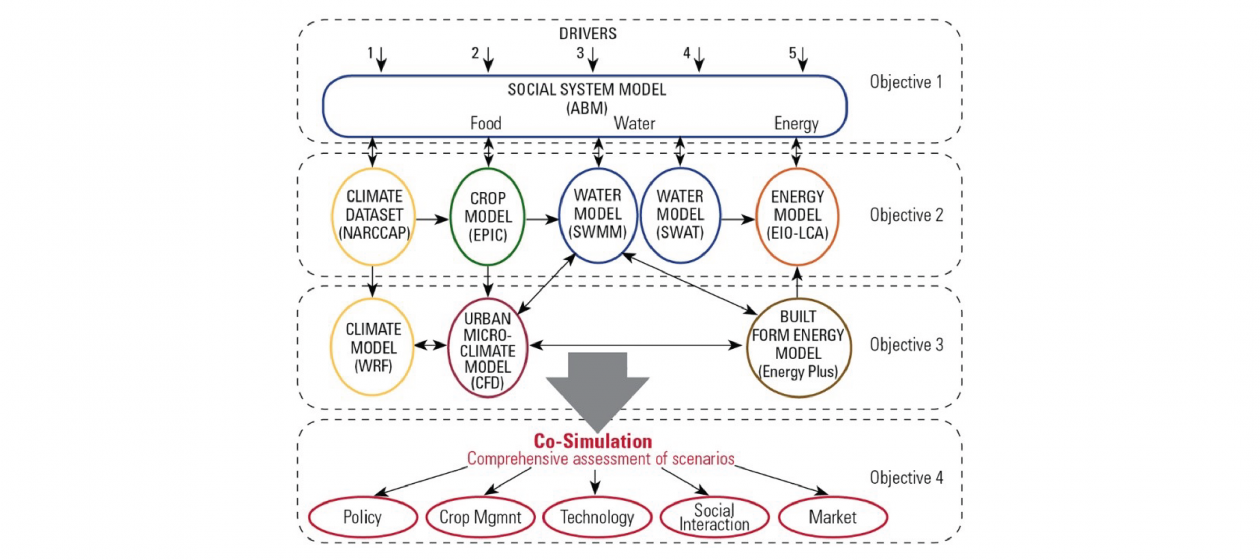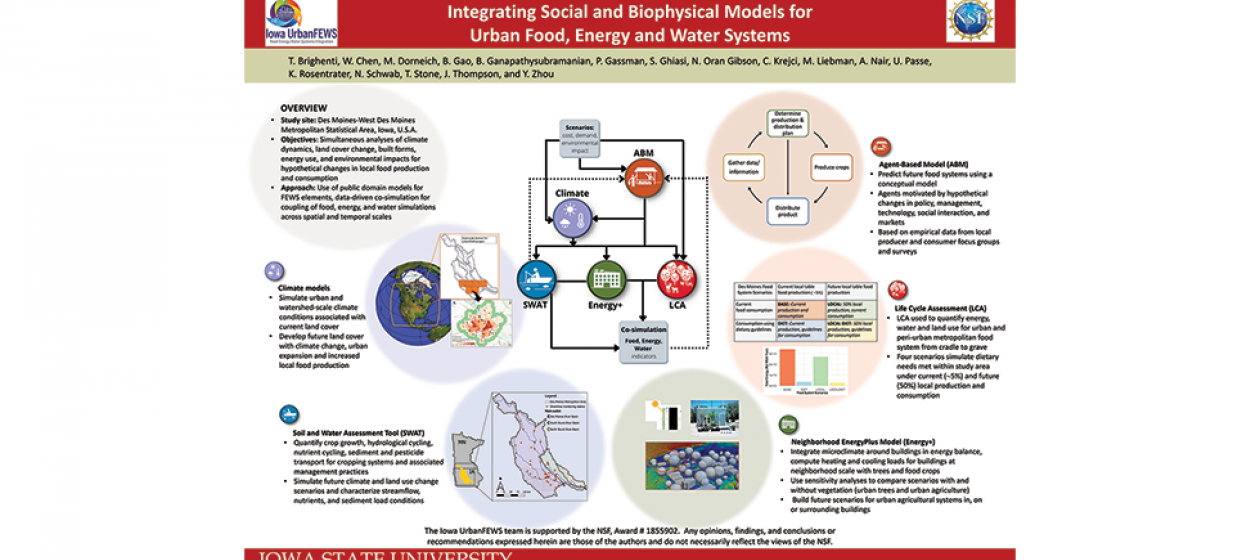Social and biophysical models to integrate local food systems, climate dynamics, built forms, and environmental impacts in the Urban Food-Energy-Water Systems nexus
Systems frameworks that analyze the Urban FEWS nexus have only recently been proposed. Developing such frameworks is challenging because urban FEW systems are characterized by disconnected processes for production, distribution, consumption, and cycling of food, energy, and water systems. In addition, the effects of changes in climate and land use, built forms, and their impacts on food supply, energy conservation and consumption, and environmental outcomes (e.g., water quality) are often considered in isolation. Our proposed work will address problems related to urban food systems, which alone cause 20% to 50% of human impact on the environment as a result of high population densities, heavy reliance on external food sources, and failure to recycle nutrients. To conduct robust analyses of urban FEW systems it is necessary to consider interactions within the urban system itself, as well as trans-boundary interactions with areas both adjacent to and further removed from the system. While frameworks emphasizing the biophysical elements of urban FEW systems and interactions among them have been presented, previous efforts failed to closely integrate social, biophysical, and climatic models to characterize the urban FEW system-of-systems. Urban areas are where over 50% of people in the world and 80% of people in the US live and work. Human choices drive significant changes in both social and physical landscapes, so it is imperative to integrate social dynamics in analyses of the urban FEWS nexus.
News
 Mar 03, 2020
Mar 03, 2020
Posted Jan 22, 2020 9:47 am
Dense urban areas use up more energy, water and food resources than they can produce themselves, forcing them to rely on external sources. But a team of researchers is imagining bold new ways to make Midwestern cities more self-reliant.
The Sustainable Cities Research Team recently received a $2.5 million grant from the National Science Foundation to develop a framework for analysis of food, energy and water systems for greater Des Moines, which includes the city and the surrounding six-county area, and to formulate scenarios that could result in a more sustainable city. The team includes scientists from a wide range of disciplines at Iowa State University, the University of Northern Iowa and University of Texas at Arlington.
The group intends for its results to inform decisions about food production, energy use, environmental outcomes and related policies that would apply to a large number of cities in rain-fed climates similar to Des Moines. Their innovative approach could help cities conserve building and transportation energy, reduce environmental impacts and improve city sustainability.
more news...
Blog
Oct 12, 2023
Iowa UrbanFEWS team published important findings regarding consumer and producer perspective on local food systems.
We examined producers’ willingness to include/increase cultivation of
local foods and consumers’ interest in purchasing/increasing local
foods. We used focus groups of producers (two groups of conventional
farmers, four local food producers) and consumers (three conventional
market participants, two locavores) to pose questions about
production/consumption of local foods.
available in
 Jul 26, 2023
Jul 26, 2023
Wei created a 2-minute video to explain why her research matters. Her video with the title “Listen! Nighttime satellite is whispering about U.S. electrical weakness” can be found at: https://vimeo.com/763439048. This video has been awarded alternative modes of scholarship. This award is to recognize the increasingly diverse ways in which researchers disseminate their research.
Jul 25, 2023
The Climate and Quaternary Research Fund is a grant program provided by the Department of Geological and Atmospheric Sciences at ISU. It was established to support research and experiential learning opportunities related to global climate change and quaternary research.
more posts...
Disclaimer
This work is supported by the National Science Foundation, Award # 1855902. Any opinions, findings, and conclusions or recommendations expressed in this material are those of the author(s) and do not necessarily reflect the views of the National Science Foundation.



